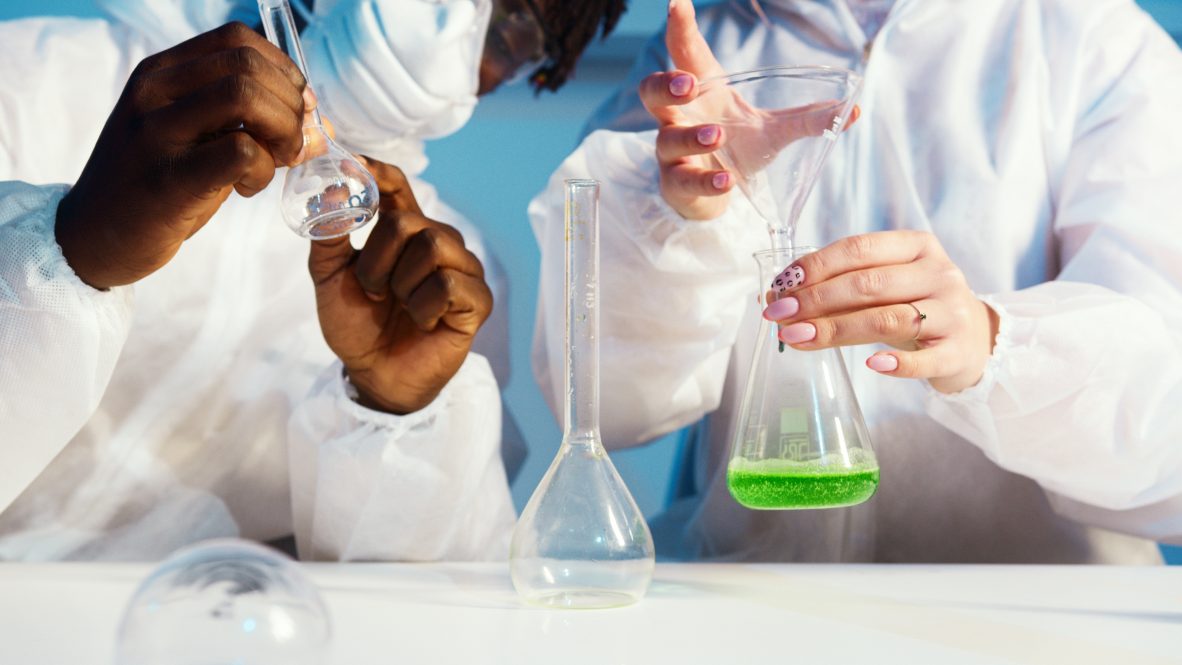Through a grant from the National Heart, Lung, and Blood Institute, UConn Health researchers are establishing a summer research program for undergraduates from historically underrepresented groups.
Assistant Professor Leslie Caromile and Professor Kimberly Dodge-Kafka in the Department of Cell Biology are co-PIs on this five-year $360,000 grant.
The program, called increasing Research Experiences for Multicultural Students (iREM), will begin this summer with a cohort of eight current undergraduate students from across the United States.
These students are part of historically underrepresented groups in the biomedical sciences, defined by the National Institutes of Health as Black, Latinx, Native American, Alaskan Native, Pacific Islander, LGBTQ+ individuals, and veterans.
The goal of this inclusive program is to promote students’ interest in, application to, and matriculation into biomedical science Ph.D. programs by providing them with a mentored, research-intensive summer program. According to data from the National Science Foundation, only approximately 15% of all doctorate recipients in 2019 were Hispanic or Latinx, Black, or Native American.
Caromile, who is part Native American, understands the impact programs like this can have. When Caromile completed her Ph.D. at the University of Washington in 2009, she was one of only eight Native Americans to earn a Ph.D. in the biomedical sciences nationwide.
Caromile’s experience participating in programs like the one she and Dodge-Kafka are establishing helped her form connections with other students and mentors, and to succeed as a researcher.
“It’s something close to my heart,” Caromile says. “I do want to pay it forward. I think it’s important to have that diversity in science. It makes science better.”
Caromile says increasing the diversity of people conducting research can lead to scientific innovation. People with different backgrounds may ask new research questions or bring up considerations others had not thought of.
Students selected for the program will participate in an intensive 10-week summer program at UConn Health. Students will work 40 hours a week with a UConn Health professor on a research project in an established basic science or translational laboratory that will have a demonstrated outcome at the end of the program.
This program is designed to be very supportive of students’ goals and ambitions, and it’s our hope that the scientific skills, knowledge, and mentoring that they receive here is something that they can take with them. — Leslie Caromile
Students will learn all the fundamental skills they need to work in a research laboratory and gain confidence in those skills.
“They’ll leave the program with the skillset and knowledge they need to be a competitive Ph.D. applicant in the biomedical sciences,” Caromile says. “This program is designed to be very supportive of students’ goals and ambitions, and it’s our hope that the scientific skills, knowledge, and mentoring that they receive here is something that they can take with them. So when they do graduate with their Ph.D., they are prepared to confidently and successfully enter into the biomedical workforce and eventually become successful scientists, community advocates, and policy makers.”
Students will receive funding and a housing stipend. This helps ensure financial burdens will not prevent students from participating in this opportunity.
During the program students will receive career guidance and intra-program mentoring through a unique coaching system that allows them to make informed decisions on their future professions. They will participate in professional development workshops and seminars focusing on skills such as how to apply for a PhD program and what they can do with a Ph.D. There will also be presentations about the breadth of bioscience research happening at UConn Health.
At the end of the 10 weeks, students will submit abstracts about their projects to national conferences where they can present their summer research to their peers and other scientists. Specifically, program mentors will encourage students to submit to conferences focused on underrepresented groups, such as the Annual Biomedical Research Conference for Minority Students and Society for Advancement of Chicanos and Native Americans in Science.
These conferences, and the program itself, help students connect with peers, network and find additional mentors to support their research endeavors.
“Seeing people like you in a position like a PI running a research lab helps you solidify the belief that: ‘I could do that’,” Caromile says.
The program organizers will follow-up with participants for five years after they complete the program to track where they are attending graduate school or working.
“We want our students to succeed, and we want them to come out of the program thinking ‘I love science and I can do this’,” Caromile says.



